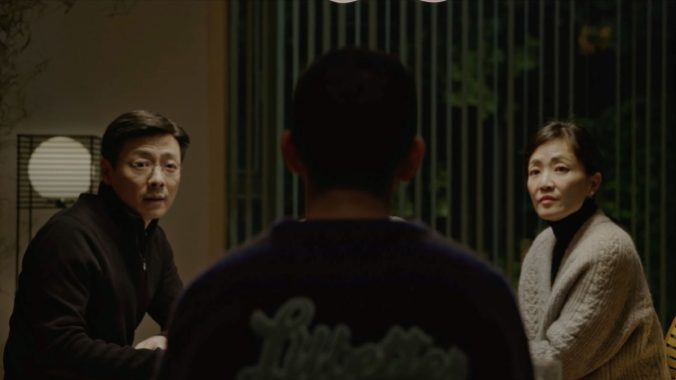A Chinese Family Adds One in Tense Psychological Thriller Brief History of a Family

A Single White Female for the end of China’s single-child policy, Brief History of a Family is a crisp and tensely framed psychological thriller debut from writer/director Jianjie Lin. Immersed in the fraught class and cultural dynamics of urban China, the story of a family slowly succumbing to the (possibly) sinister affections of their son’s quiet classmate is an infectious good time. Crafted with such delightful suspense that you can’t help but smile as you squirm, Brief History of a Family pulls from plenty of genre influences (its have/have-not friction and affluent apartment confines will be familiar to Parasite fans) to construct a tight dramatic metaphor encompassing Chinese parenting values and the end of a sociopolitical era.
At the heart of Brief History of a Family is the pulsing disappointment of difference. Shuo (Xilun Sun) is quiet, bookish, serious—a kid who gets bullied. Wei (Muran Lin), in his oversized hoodies and Beats-like headphones pumping Brit-hop into his ears, isn’t an academic all-star. He’s a little more Western, a little more visibly wealthy, a little more likely to lash out at those who have the qualities his more traditional family might appreciate. But when Wei bops Shuo in the head with a basketball, an injury-causing meet-cute between unlikely friends, it’s not that hard to believe. They both seem like outsiders, in their own way. Wei hurries Shuo over to his house for after-school gaming, which is where Shuo sees opportunity.
Wei’s apartment, pointedly a decent bike ride away from school—and over a conspicuous bridge as clear an architectural barrier as train tracks—has the smell of new money. It’s spotless, sharply angled, filled with glass. A floor-to-ceiling window backdrops the clean lines, classy whites and understated technology of the home. A transparent dividing wall splits the living room in two, masking a dining area with ostentatious opacity. Shuo as a character isn’t given to expressing…well, anything, really, but there’s an obvious sense of awe to the environmental shift.
This awe is only heightened when Wei’s parents (played by Feng Zu and Keyu Guo) arrive, taking in their son’s odd friend with an apprehension soon melted by his sob stories and sycophancy. Shuo knows how to weaponize his misfortune, and middle-class guilt is the perfect target. Lin’s knowingly structured script never hides its intentions, reveling in the tension to an almost amusing degree, while his crisp and ominous camera makes every innocuous sequence an exercise in everyday eeriness.
-

-

-

-

-

-

-

-

-

-

-

-

-

-

-

-

-

-

-

-

-

-

-

-

-

-

-

-

-

-

-

-

-

-

-

-

-

-

-

-








































